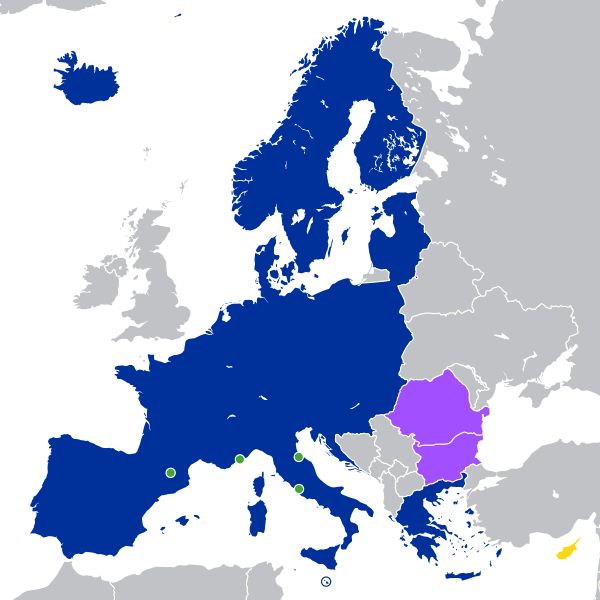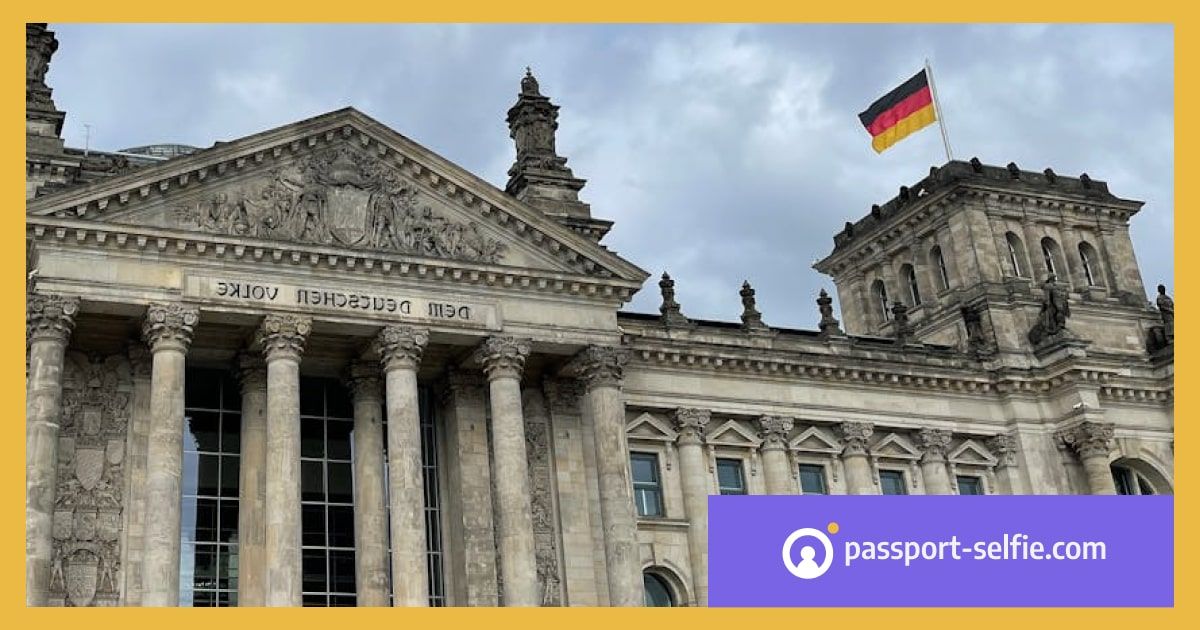Summary
Don't have time to read through this article? We've summarized all the important points for you:
- A Schengen Visa is valid for short stays of up to 90 days.
- Some of the essential documents for a Schengen Visitor or Tourist visa include a valid passport, application form, travel insurance, and proof of financial means.
- For a German Tourist/Visitor Visas it is important to pay special attention to proof of accommodation and proof of income.
- Your German Schengen visa allows travel to other Schengen nations.
Planning a trip to Germany or other European countries? The Schengen area is your gateway to some of the most popular destinations. Unsure if you need a Schengen visa or what the requirements are? Don't worry, we've got you covered with all the details.
What is a Schengen Visa?

The Schengen visa allows you to travel freely between 29 countries in Europe, including Germany. It's your golden ticket to a hassle-free European adventure. But first, you need to get your visa application right.
Who Needs a Schengen Visa?
If you're from a non-EU country and planning a short trip to the Schengen Area (that’s up to 90 days within a 180-day period), you’ll need to submit a Schengen Visa application. This applies if you're heading over for tourism, business, or to visit family. However, some countries have special agreements with Schengen states that let their citizens skip the visa for short stays.
Check the EU list to see which countries require their citizens to obtain a visa when entering the Schengen area. Note that there are exceptions to these visa requirements for specific travelers, such as diplomats, armed forces members, refugees, and students on school excursions.
Just visiting one Schengen country? Apply for your visa at the consulate of the country you're heading to.
Hitting up multiple Schengen countries? Apply for your visa at the consulate of the country where you'll crash the most nights.
Traveling around Schengen but no main spot? If you're staying equal nights in different countries, apply at the consulate of the country you'll enter first.
What if there’s no embassy or consulate for my Schengen destination in my country? You might need to apply through the embassy or consulate of another Schengen country in your area - or a Visa Application Center (VAC), although additional fees may apply for this last option.
Is it possible to cancel my bookings after receiving a Schengen visa? Yes, you can cancel your bookings after getting a Schengen visa, but it's essential to ensure that your new travel plans still comply with the conditions of your visa. If your main destination changes, let the consulate that issued your visa know since big changes might need a new application.
Our Tip: Use this short-stay visa calculator to easily track how many days you have left in your Schengen stay. It’s a handy tool to ensure you stay within your allowed 90-day limit and avoid overstaying.
General Schengen Visa Requirements
To apply for a Schengen Visa, you’ll need to gather several important documents. Here’s a general checklist:
- Visa Application Form: A fully completed and signed Schengen Visa Application Form.
- Passport: Must be valid for at least three months beyond your planned departure from the Schengen area and issued within the last 10 years.
- Biometric Photos: Two recent passport photos taken within the last three months that meet specific standards, such as size and background. You can easily get a Schengen visa-compliant photo online using our online passport photo maker tool.
- Travel Insurance: Coverage of at least €30,000 for medical emergencies, valid throughout the Schengen area.
- Proof of Accommodation: Hotel bookings, rental agreements, or an invitation letter from a host.
- Proof of Financial Means: Bank statements, sponsorship letters, or a combination of both, showing you can support yourself during your stay..
- Round Trip Reservation: Flight itinerary with entry and exit dates.
- Visa Fee: €90 for adults and €45 for children aged 6-12. For applicants from Armenia, Azerbaijan, and Belarus, the fee is €35, and for applicants from Cabo Verde, it is €67.50 (as of August 2024).
Make sure to check the specific requirements for the country you are applying to, as there might be additional documents needed.
Schengen Visa for Germany

Here’s a rundown of specific requirements to help you increase your chances of a successful application for a Schengen visa to travel to Germany, that you will need to provide along the already mentioned Schengen Visa Documents:
- Proof of Purpose of Visit: Depending on your purpose (tourism, business, visiting family or friends), you may need additional documents like an invitation letter, business meeting details, or a detailed travel itinerary.
- Employment contract or proof of self-employment if applicable
- Specific requirements can also vary based on your nationality and the purpose of your visit, so always check the latest information from the German Embassy or Consulate in your country.
Keep in mind that a German Schengen tourist visa or Visitor Visa only allows for travel and tourism; it doesn't permit you to work or study in Germany. If you plan to work, study, or engage in other activities beyond tourism, you’ll need to apply for a different type of visa, such as a German student visa or work visa.
Our Tip: Include a cover letter with your Schengen visa application for Germany. Briefly explain the purpose of your visit, your itinerary, and what you plan to do while you’re there. A clear and concise cover letter helps strengthen your application.
Application Process for a German Tourist or Visitor Visa
- Determine if You Need a Visa: Check if your nationality requires a Schengen Visa to enter Germany.
- Complete the Visa Application Form
- Schedule an Appointment: Book an appointment at the German Embassy or Consulate in your country.
- Gather all necessary documents
- Attend the Visa Interview: Bring your documents and attend the interview at the scheduled time.
- Pay the Visa Fee
- Wait for Processing: The processing time can vary, so apply well in advance of your planned travel dates
Our Tip: Apply early! It’s recommended to apply at least 15 days before your planned trip, but you can apply up to six months in advance.
Extending Your German Visitor Visa
Extending your visit visa while in Germany is not straightforward. Generally, extensions are only granted under exceptional circumstances. These might include serious personal reasons such as medical emergencies or unforeseen events that prevent you from leaving.
To request an extension, you’ll need to contact the local foreigners' authority (Ausländerbehörde, Landesamt für Einwanderung) before your current visa expires. You must provide valid reasons for the extension, along with supporting documents. Keep in mind that extensions are not guaranteed and must meet specific criteria.
Using Your German Schengen Visa for Other Countries
You can visit other Schengen countries with your German Schengen visa. Germany is part of the Schengen Area, which allows for travel between member countries without needing additional visas. Here are the main points to remember:
- Your German visa grants you access to all Schengen countries for up to 90 days within a 180-day period.
- However, it’s a good idea to plan your trip carefully and ensure that Germany is either your main destination or the country where you first enter the Schengen Area, as this can impact the application and approval process.
- A frequent misunderstanding is that the UK is included in the Schengen Area. In reality, it never has been, and Brexit has only made this distinction clearer.
Conclusion
Applying for a Schengen visa to Germany is straightforward if you follow the right steps and prepare all required documents. With the right preparation, you can ensure a smooth application process. Tools like our online passport photo app make one part of the process easier, especially if you are not sure about the german visa photo size and other requirements. Safe travels and enjoy every moment of your journey!
Author: Valeria Calpanchay
Valeria Calpanchay is a seasoned globetrotter with a deep passion for digital product design, marketing, writing, and online media. Her expertise allows her to provide valuable guides for passport photos on our website, delighting our users with her insights.






